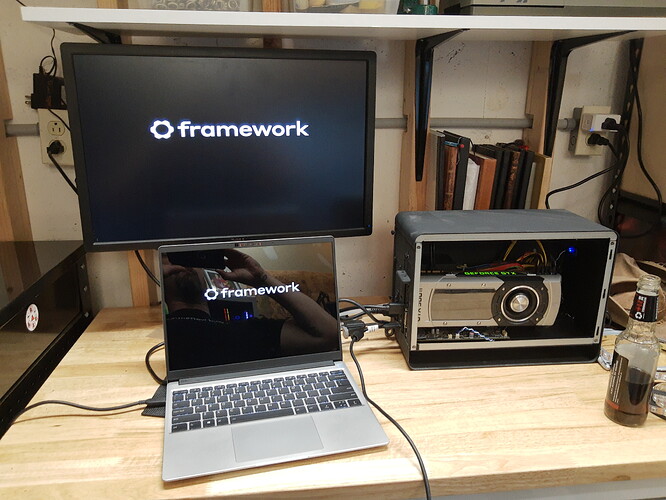This probably won’t work until the whole TB certification thing gets sorted, but my TB graphics dock with a 980 GTX installed does get used at boot.
If I connect it after boot, linux does see it via nvidia-config-smi but I haven’t had any luck switching to it just yet.
Great! Which distro were you using previously where there were issues?
That is pretty excellent! I wonder if this is all working under Windows?
@nrp PopOS . It sees the device just fine and I can throw CUDA jobs at it, but it throws DRM errors when you connect a screen up so I decided to try Fedora. I’m on the nouveau driver still , I need to buy some of those storage cards so I don’t have to keep nuking my main OS 
There is a consistent issue though of not being able to boot with the dock connected, but I imagine that is tied to the certification process.
@Scratch did you have usb devices plugged into the egpu and if so, did you find when booting up with the egpu that they only sometimes turned on/where recognized by the system? So far, my usb devices are only recognized fully when I plug in the egpu after I’ve started the laptop
(Specifically around Windows 10)
@Scratch did you have usb devices plugged into the egpu and if so, did you find when booting up with the egpu that they only sometimes turned on/where recognized by the system? So far, my usb devices are only recognized fully when I plug in the egpu after I’ve started the laptop
(Specifically around Windows 10)
@faultedbeing I haven’t had that issue no. My issue is that if the egpu is plugged in at all, it won’t boot. Just hangs at the framework logo in Bios. I can plug it in as soon as the bootloader comes up though and everything works. Mine is a PowerColor Gaming Station from Microcenter.


